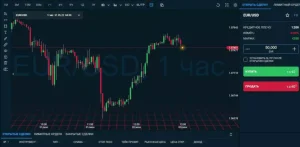The adoption of cryptocurrencies is slowed down due to regulatory uncertainty. Major investors want to see how authorities categorize such digital holdings to understand which laws they should follow when trading them. The ongoing battle regarding the legal status of XRP exemplifies this fundamental uncertainty regarding the status of tokenized money. Institutional and individual investors need to follow clear guidelines to maintain compliance and implement effective investment strategies. In this commodity vs security comparison guide, we will analyze the differences between these two categories and consider the regulatory framework holders should use when dealing with them.
Securities and Commodities Explained
The Securities and Exchange Commission (SEC) considers securities as financial instruments. They represent a claim on stocks, bonds, notes, and derivatives. Every person or organization interested in such valuables expects to profit from the deal by selling the stock when the price increases or receiving dividends when holding it. Equity securities are all about ownership stakes in a business, while debt securities represent the relationship of creditors with governments and organizations. Such instruments allow businesses to find funding for their endeavors and daily operations.
In contrast, commodities are physical assets traded on exchanges. Gold, silver, and other precious metals are the most popular examples of this type. Agricultural products are also traded similarly In the U.S., commodity trading is regulated by the Commodity Futures Trading Commission (CFTC). Their main difference is that they have a certain uniformity, as every unit is the same as the rest. The usage of commodities is crucial to ensure the stable functioning of the global economy.
The key takeaway is that commodities are tangible. They can be purchased and sold, while securities only represent ownership. SEC and CFTC are currently discussing how to categorize cryptocurrencies and develop transparent industry guidelines. Using the “Howey Test” developed by the U.S. Supreme Court, it becomes possible to classify any token.
Back in 2019, the SEC proclaimed BTC did not pass the test. While people and entities invest money in this Bitcoin, it’s not controlled by one entity, and funds are not pooled together to fund a joint business. Finally, the SEC believes BTC’s value does not depend on third parties. However, XRP did not receive the same treatment, and the legal battle regarding the status of this cryptocurrency still continues to shake the environment.


Turnkey Brokerage Solution For Your Business
Get the most profitable fully licensed fx/crypto brokerage software or ready-to-operate business in 48 hours. Best-in-class web & mobile trading platforms, sales-driven CRM, full integration with MT4/5, and 150+ payment providers.
Why Does the Classification of Crypto Matter?
Establishing clear regulatory frameworks for decentralized currencies is impossible without putting digital assets into suitable categories. If a token is perceived as a security, exchanges should obtain licenses to ensure compliance. This process is quite time-consuming, as there are many obstacles a company has to solve. Due to this fact, the industry seeks to avoid developing tokens functioning like securities.
Decentralization is the key to circumventing strict security regulations. When there is no single group of developers responsible for a token’s value, it can be traded with fewer restrictions. Is crypto a security or commodity? Below, we have outlined the main reasons why this question is important.
- Regulatory protection: Investors need to understand how their holdings are regulated to avoid possible risks. SEC has stricter requirements, but they minimize the risk of fraudulent activities and price manipulation. CFTC rules are different, so shareholders should be able to understand what laws they should follow to make informed decisions and avoid issues with the law.
- Taxes: Crypto holdings are taxed depending on the category they fall into. When a person profits from a token functioning as a security, they should follow certain recommendations. Knowing how to categorize it allows stockholders to minimize tax liabilities and increase gains.
- Stability: Correct classification facilitates stabilizing prices and avoiding volatility. Securities must meet advanced reporting requirements, which makes it safer to invest in them. Commodity prices are more volatile, but investors can earn more by purchasing stocks at the right moment. The question “Are cryptocurrencies securities?” remains open-ended as the assets currently available online function differently. Learning more about tokens before committing themselves to a purchase allows traders to avoid money loss.
- Investment opportunities: Securities are available on stock exchanges, so it is easier to access them. Such platforms are characterized by higher liquidity. Commodities are bought in future markets. They enable traders to experiment with various hedging and speculation strategies.
- Expenditure related to compliance: It’s more expensive to ensure securities are fully compliant. Meeting SEC requirements is challenging and time-consuming. Commodities are easier to regulate. Investing in them brings higher yields, as costs associated with compliance are lower.
- Future development: Answering the question “Is crypto a commodity?” is also crucial for those who want to determine the innovative potential of a specific digital currency. Regulatory scrutiny often hinders progress and stops entrepreneurs from purchasing securities. However, such investments are safer in the long term due to enhanced transparency. Commodities stand out for their fast-paced development, but investing in them is riskier due to price fluctuations.
- Global situation: Legislative frameworks differ depending on a country. The Markets in Crypto Assets (MiCA) regulation in the EU is an example of a weighted approach to controlling the industry. One token can be seen as a security in one country and traded as a commodity in another. Traders need to recognize the specific conditions of each environment and explore the opportunities they offer.
- Long-term perspective: Securities are safer and have higher credibility. Nevertheless, traders interested in short-term profits prefer to invest in commodities.
When comparing commodity vs security, it’s worth remembering another difference between them. Exchanges may be wary of listing the latter to avoid the SEC’s attention. DeFi projects aim to decentralize the development process and use elaborate consensus mechanisms to ensure tokens won’t be labeled as securities.

Is Crypto a Commodity or a Security?
The fast-paced development of the industry demonstrates that large funds and individual investors become more interested in it. While it’s impossible to predict the changes in the regulatory environment, the common consensus is that only some cryptocurrencies will be classified as securities.
Many people wonder: “Is Bitcoin a security or commodity?” CFTC has added BTC and ETH in the latter category, as they are regulated under the Commodity Exchange Act. According to the position of regulators, each BTC has the same worth, which allows legislators to put it in the same category as precious metals. However, the regulatory landscape is likely to become more complicated in the future, as the ongoing case against Ripple has demonstrated.
According to MiCA, crypto can be considered a unique asset class. This regulation seeks to establish easy-to-understand guidelines. Wallet providers, cryptocurrency developers, and exchanges must follow specific steps to remain compliant. While laws regulating non-fungible tokes may require further clarification, the first steps taken toward tighter control show lawmakers have customers’ best interests in mind.
Exchange Traded Funds (ETF) are considered pooled securities. It means they should be traded on a stock exchange, which makes them different from commodities. The SEC has already approved the listing of multiple Bitcoin and ETH ETFs. They allow large businesses to access a potentially profitable asset and implement result-yielding investment approaches while meeting requirements. Major ventures significantly benefit from the fact that ETFs are managed by reliable custodians, which ensures they will remain securely protected.
Thus, various types of crypto assets are likely to be categorized differently. Understanding the specifics of every token is necessary to make a fact-based investment decision.
The Role of SEC Regulation in Crypto
Even though many ventures are wary of regulatory scrutiny, the creation of transparent laws for everyone to follow will enhance accountability and attract liquidity. SEC sees its mission in the creation of a safe environment that protects the interests of clients interested in a variety of holdings. The commission performs the following tasks:
- Classifies crypto as securities or commodities: It establishes classification criteria to regulate decentralized currencies and sets clear trading rules.
- Protects market participants: When a token is classified as a security, investors know it meets specific criteria and functions transparently. It reduces the risk of getting scammed.
- Stabilizes the situation: The intervention of the SEC eliminates the risk of price manipulation and insider trading. It attracts potential buyers and positively impacts liquidity.
- Fosters innovation: The development of comprehensive laws is necessary for organizations that want to invest in growth. Even though some requirements may seem strict, universally accepted rules create a safer environment.
- Clarifies the difference between various types of assets: Organizations and investors need to know how to handle specific holdings.
- Set easy-to-follow guidelines: The commission develops reporting and compliance requirements every entity should follow. It guarantees that participants will adhere to the same requirements, making the situation more predictable.
In addition, the SEC enforces its rules and penalizes those who do not adhere to them. It detects non-compliant actors and ensures they won’t be able to continue their operations unless they change their policies to become law-abiding.
This commodity vs security comparison shows that the status of major cryptocurrencies requires further classification. Once they are classified by regulators, institutions will be more inclined to invest more. Even though with strict regulation crypto markets are bound to become less volatile, it will expedite mass adoption of decentralized holdings and democratize access to the industry.






